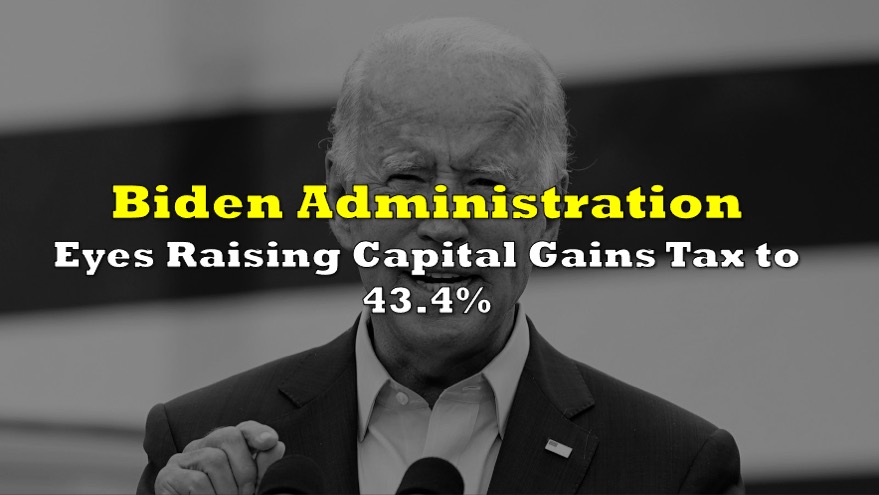While numerous households across the US celebrated as they received their stimulus checks, the current topic dominating headlines is how will they spend this newly-found wealth. Simultaneously, however, Bloomberg has just released a report revealing the inevitable truth: eventually, the federal government will need to change course from spending to fundraising.
According Bloomberg, President Biden is in the midst of planning America’s first major tax increase since 1993, in order to pay for the upcoming long-term economic spending plan that is expected to follow the $1.9 trillion stimulus bill. Unlike the latest round of emergency Covid-19 relief, the second initiative is expected to be significantly larger, and will no longer just rely on government debt as the main source of funding. As a result, advisors have begun to devise a new set of measures that could ultimately include an increase to not only the corporate tax rate, but the individual tax rate as well.
Although any notion of potential rate changes have proven to be riddled with political risk, in the event that such changes do come to fruition, they could become an opportunity to fund significant initiatives such as major infrastructure projects, climate change, and help for the impoverished. In addition, the changes could also overhaul some of the inequalities that exist in the US tax system— something that has become a talking point for many Democrats.
Thus far, the White House has rejected proposals for an outright wealth tax, however, the Biden’s administration current course of taxation action will likely target those in the higher income quartiles. As cited by Bloomberg, several people familiar with the matter revealed that the Biden administration is expected to propose a new series of tax hikes, many of which were part of the president’s 2020 campaign proposal.
Some of the proposals currently considered or are in the planning stage include: increasing the corporate tax rate from 21% to 28%; raising the personal income tax rate for those with incomes of $400,000 or higher; expanding the estate tax; cutting back tax preferences for so-called pass-through-businesses; and, increasing the capital-gains tax for those making at least $1 million per year.
In an interview with Bloomberg TV on Monday, White House economist Heather Boushey emphasized that the administration will not raise taxes for those earning below $400,000. However, she did note that “folks at the top who’ve been able to benefit from this economy and haven’t been this hard hit, there’s a lot of room there to think about what kinds of revenue we can raise.” According to an analysis conducted by the Tax Policy Center, Biden’s potential tax plan could raise government revenue by $2.1 trillion within the span of a decade.
The last time the US has been the subject of a tax overhaul to such magnitude has been in 1993, during Bill Clinton’s term in office. Since then, only minor modifications have been done, and as a result, the US governments revenues have trended lower over the past 30 years. Although the exact details of the program have yet to be officially revealed, the plan is expected to be announced after the latest Covid-19 bill is put into law.

Information for this briefing was found via Bloomberg. The author has no securities or affiliations related to this organization. Not a recommendation to buy or sell. Always do additional research and consult a professional before purchasing a security. The author holds no licenses.









